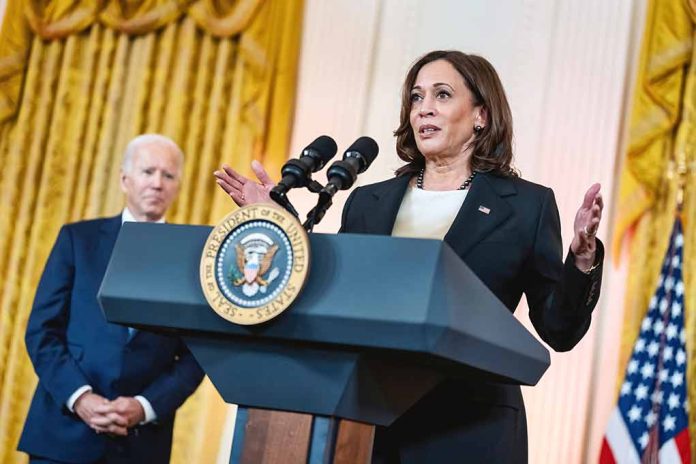
Biden and Harris face scrutiny over media strategy and team management as reports of discord surface.
At a Glance
- House Oversight Committee criticizes Biden-Harris Administration’s policy failures
- Kamala Harris adopts media-avoidance strategy similar to Biden’s 2020 campaign
- Republicans accuse administration of prioritizing progressive agenda over effective governance
- Harris’s limited media engagement raises concerns about transparency and accountability
House Oversight Committee Hearing Exposes Administration’s Shortcomings
The House Committee on Oversight and Accountability recently held a hearing titled “A Legacy of Incompetence: Consequences of the Biden-Harris Administration’s Policy Failures.” Republican lawmakers used this platform to criticize the current administration for what they perceive as weak leadership and detrimental policies. They cited record-high inflation, an ongoing border crisis, and global instability as evidence of the administration’s failures.
Chairman James Comer released a memorandum outlining the administration’s alleged policy missteps, including regulatory expansion, changes to immigration policy, and mismanagement of taxpayer funds. Expert witnesses testified that these policies have led to a border crisis, wasted taxpayer money, damaged international credibility, and hurt U.S. energy production.
Harris’s Media Strategy Raises Concerns
Vice President Kamala Harris appears to be adopting a media strategy reminiscent of Joe Biden’s 2020 campaign approach, which involved limited press interactions. This strategy is raising eyebrows and inviting criticism from various quarters. Harris has only participated in one nationally televised interview since becoming the nominee, contributing to a lack of clarity about her policy agenda.
Critics argue that this media-avoidance tactic may prevent negative coverage of minor issues but leaves Harris’s stance on major issues unclear. The strategy is seen as potentially reinforcing negative narratives pushed by political opponents and missing opportunities to demonstrate competence and policy understanding.
Implications for Accountability and Transparency
The decision to limit media interactions is viewed by some as problematic for democratic accountability. Media scrutiny is considered beneficial for testing candidates’ positions and holding them accountable to the public. Despite the fractured media landscape, major outlets like The New York Times and The Washington Post still hold significant influence in shaping public opinion.
Harris’s team has opted for targeted interviews with specific outlets, bypassing larger national media organizations. This approach reflects a belief that media scrutiny can be unfair, a premise that many political observers consider flawed. Critics argue that engaging with the press could benefit Harris’s campaign and help differentiate it from Biden’s previous strategy.
Looking Ahead: Campaign Challenges and Opportunities
As the Biden-Harris administration transitions into campaign mode, they face the challenge of maintaining an image of political alignment while addressing reports of internal discord. The influence of Biden’s previous campaign team on Harris’s current strategy is viewed as potentially problematic by some analysts.
Moving forward, Harris may need to reconsider her media strategy to demonstrate her capabilities and address public concerns. Engaging more openly with the press could provide opportunities to clarify her policy positions and showcase her leadership skills. As the administration faces ongoing criticism from Republican lawmakers and scrutiny from the media, finding a balance between strategic messaging and transparent communication will be crucial for their political future.














